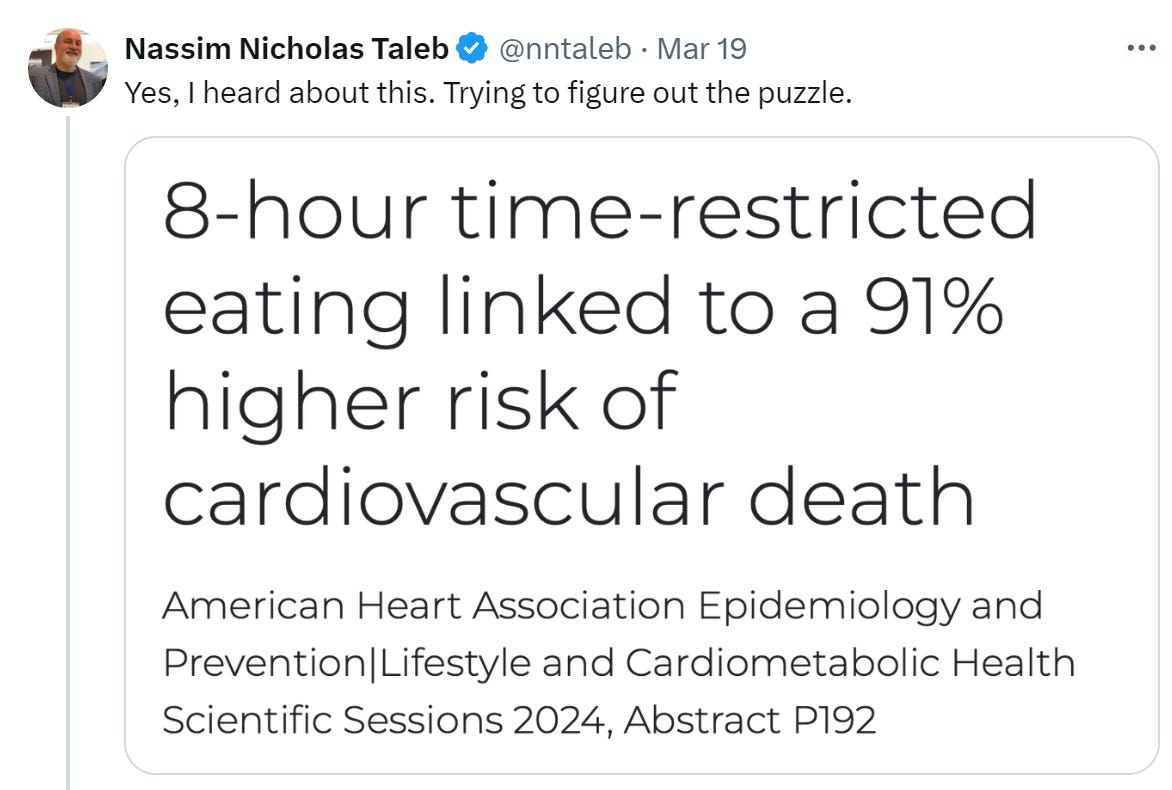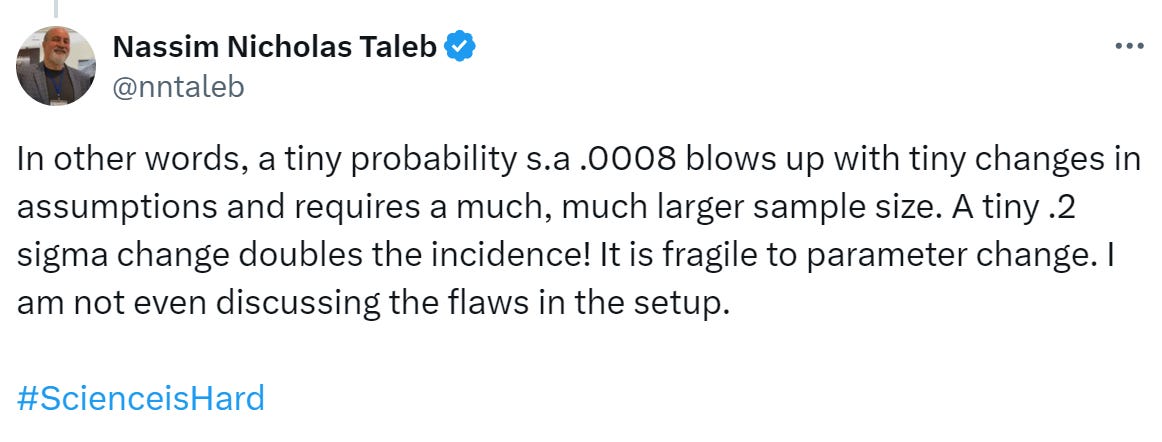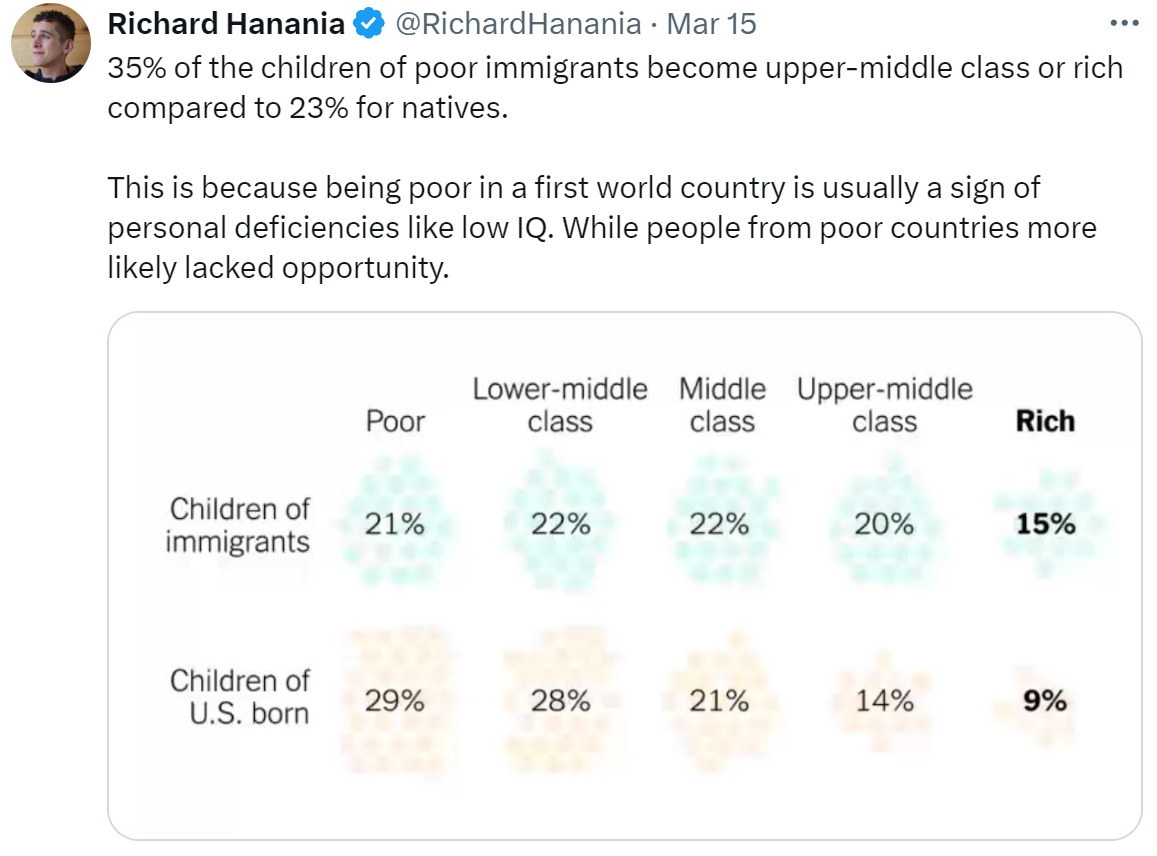M&Ms: Layers of Skin in the Game
How Skin in the Game impacts the information you receive.
Years ago, when I worked in a restaurant, as we neared the Super Bowl, many of my colleagues and customers were gambling heavily on American Football.
As an immigrant, I knew nothing about the sport or its complex rules, and I really hated gambling.
But then, one Super Bowl, my colleague and good friend John said to me, "Louie, you're the only bartender I know in The Bronx that doesn't know shit about football. We need to change that."
Then John gave me the recipe. He said, "I know you hate gambling, but here's what you're gonna do: pick a box in the Super Bowl box raffle and also place a bet on one of the teams with one of the bookies that frequents our restaurant.
Trust me, whatever you lose in gambling, you'll make up in tips from customers after you're forced to learn the sport."
John was wise beyond his years. A combination of street and school smarts, I never questioned his advice. I just did what he said.
But I'll never forget that Super Bowl, not just because the NY Giants upset Tom Brady and the New England Patriots, who were undefeated.
But because I made over $5 Grand gambling in that Super Bowl. And I learned every damn esoteric rule there is to know about American Football. Then, whenever my customers talked about the sport at my bar, I could conversate like the best of them. John was right, my tips went up significantly.
But I internalized something else important, too. There are few better ways to learn something than when your hard-earned money is on the line. Even if you have no control over the outcome, you'll still learn as much as you can about what's happening.
With your money on the line, you've got what Nicholas Nassim Taleb famously named one of his books after, "Skin in the Game." In it, Taleb says, "Don't tell me what you "think," just tell me what's in your portfolio."
Skin in the game explains why the betting markets, with their odds, are usually right. People who have real-life money on the line are doing real research to figure out the probabilities of certain events happening.
But the Bronx and the streets don’t just teach you that you learn fast when your money is on the line. They also teach you that you learn even faster than that when your life is on the line. That’s how street smarts, like the type my friend John has, are built. If money on the line is metaphorical skin in the game, life on the line is as real deal as it gets.
It's like that famous saying Charlie Munger repeated often: "The rabbit runs faster than the fox because the fox is running for his lunch, but the rabbit is running for his life." The orders of magnitude of what's at stake between the rabbit & the fox just aren't the same. The fox can always find another lunch.
But just this week, a new study demonstrated what can happen when there is real skin in the game. The study said intermittent fasting increases the odds of death from heart disease by 91%.
The non-peer-reviewed study was done out of a university in China and picked up by several major news organizations. Then, it made it to the American Heart Association.
But you can bet that the people who practice intermittent fasting, with their real lives on the line, are going to pursue that research.
Within two days, the study was debunked. The researchers, academics with no skin in the game, failed to conduct a proper study.
But just think about all that for a second.
A brand new study came out of a university, and it spread like wildfire through the media. But within a few days, it’s all debunked. It's amazing how quickly people act with skin in the game.
I think there are a few lessons from all this.
First, if you really want to learn something new fast, you've got to, unfortunately, be exposed to the downsides of being wrong in some way. Although I enjoyed the lessons I got from gambling in that Super Bowl, I never gambled on American Football again. I am $5 grand and countless more in tips up, though. And I don’t think you have to gamble to learn, but you learn faster when you have something at risk.
The second lesson is that when dealing with other people, and when you need to figure out if you can trust what they are saying. Ask yourself, "What sort of skin does this person have in the game that’s telling me all this?"
But remember, not all skin in the game is the same. There are layers of skin in the game.
Someone who is just "tawking shit" isn't the same as someone who's got their money on the line.
And someone who's got their life on the line has ultimate skin in the game.
A Promo by Me:
Small Bets has a packed lineup of exciting live classes coming up. Take a look at just some of the confirmed events we have coming up:
• Mar 29: Spreading Ideas with Memes by Dagobert Renouf
• Apr 02: Publish a Best-Selling Course on Udemy by Hassan Osman
• Apr 03: Amazon KDP Crash Course by Greg Lim
• Apr 09: Creating Income through Real Estate by Louie Bacaj
• Apr 10: Accounting and Bookkeeping Basics by Antonio Reza
• Apr 11: Getting Started with Midjourney by Christian Heidorn
• Apr 16: Delve Into Expiring Domain Names by Peter Askew
• Apr 18: Business English Fundamentals by Jack Connor
• Apr 23: Self-Sponsor Your Own US Green Card by Archie Agrawal
• Apr 25: Marketing Fundamentals for Non-Marketers by Daniel Vassallo
• Apr 30: Getting Started on YouTube by Aprilynne Alter
• May 02: Building macOS Apps with SwiftUI by Grace Huang
• May 06: Getting Started on Airbnb by Isaac French
• May 07: Gumroad Crash Course by Daniel Vassallo
• May 14: Intro to Google Ads by Jay Mac
• May 16: Wandering the Pathless Path by Paul Millerd
• May 21: Emerging from the Void on Twitter / X by Daniel Vassallo
• Jun 04: Sift Through the Treasure Trove of Online Data by Steph Smith
• Jun 06: Effortless Screencasting by Aaron Francis
• Jun 13: SEO Keyword Research by Jordan O'Connor
• Jun 18: AI for the Rest of Us by Sairam Sundaresan
• Jul 25: Building a Media Business by Arvid Kahl
If you’re not a member of the Small Bets Community yet, you can use code FOLLOWER at checkout to get 50% off.
Three Serious Things: YC Rejects, Street Smarts, Family
The last time I wrote to you (in the No Billions edition of this newsletter), I revealed that I made it to the interview phase with YC, but they rejected me.
It is now with great honor that I find other people, like Pieter Levels, whom I admire, who were also rejected.
I love stories like this because they highlight how far you can get in life with hard work & some street smarts.
This gentleman says he made $2 million in one year, and says the three lessons he learned from his mentor are:
1) Fall in love with people
2) Fall in love with sales
3) Fall in love with numbers
Unfortunately for Richard, as an Immigrant myself, I think while these stats from the NY Times are likely accurate, they’ve got nothing to do with IQ.
And I think they have everything to do with family & upbringing. If you come from a broken home or have no extended family, it is incredibly difficult to make something of yourself.
But even if you come from nothing but have lots of family around you, you have a very real shot in this world.
Three Things for the Laughs: Meeting Jail, The Daddy of AI, The Odds
This is the sort of feature that can save a lot of people a lot of time.
This week, Satya Nadella, the CEO of Microsoft, hired the CEO of a prominent well funded AI startup to work for him.
And at the same time, he made some incredible comments to his board:
"If OpenAl disappeared tomorrow, we have all the IP rights and all the capability. We have the people, we have the compute, we have the data, we have everything. We are below them, above them, around them."
Proving that Satya Nadella is now the daddy of AI.
While this is meant to be a little funny, there is also a serious aspect to it.
It’s important to learn your odds in anything you’re doing in life.
Thank you for reading!
—Louie
P.S. You can reply directly to this email; it will get to me, and I will read it.
















Great storytelling to make your point, as always!
Another short but sweet story with great real-life advice! 🦊🐰
I'm curious Louie, you refer to yourself as an immigrant, yet you've been a New Yorker since u were a little kid. Wouldn't just your parents be called immigrants? 🤔
Also, can I ask which Balkan country your family's from? (I'm pretty sure but don't want to get it wrong 😅)